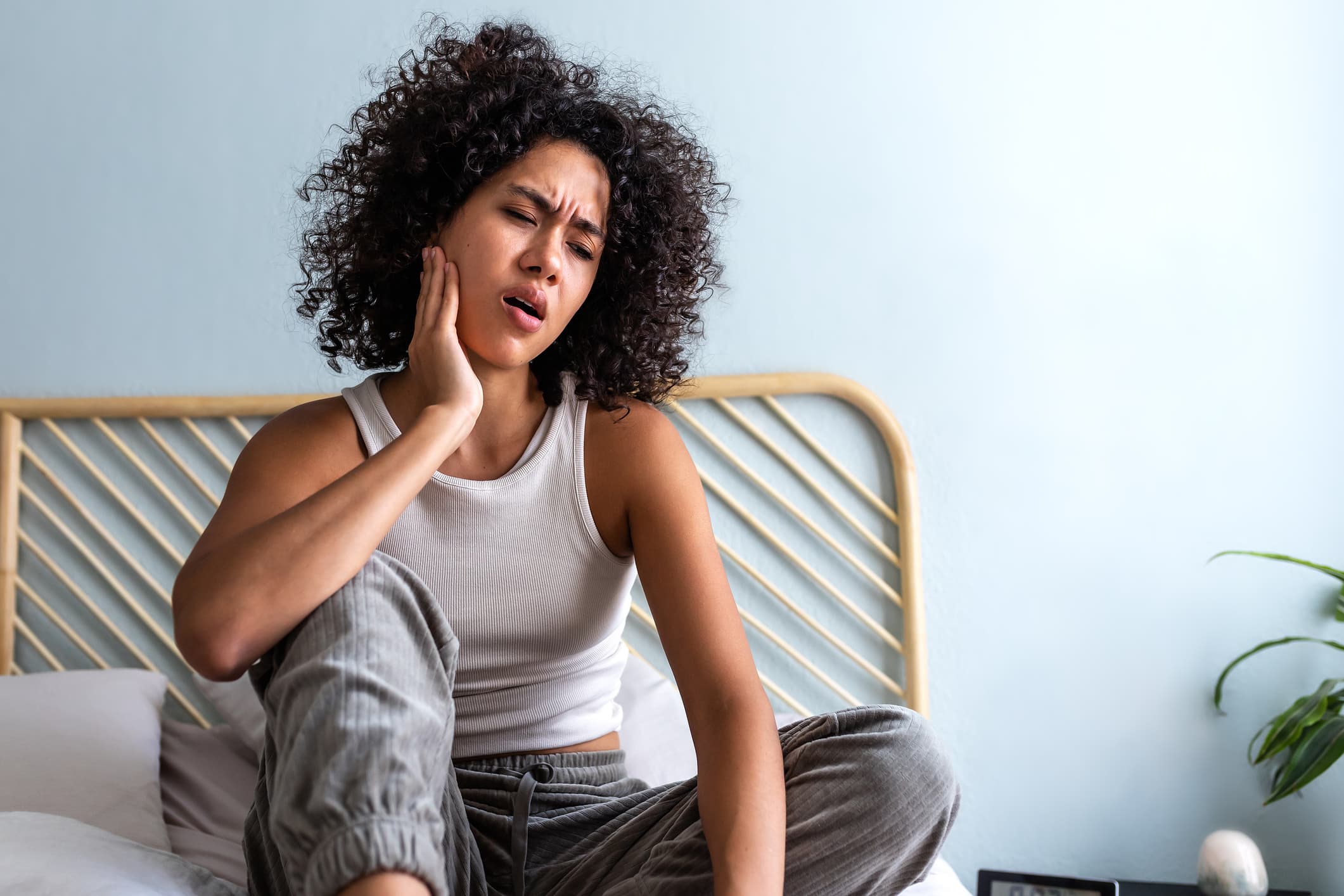
How to Stop Grinding Your Teeth (Without Even Realizing You’re Doing It)
Do you wake up with a sore jaw or frequent headaches? Have you noticed your teeth looking flatter or more sensitive than usual? You could be grinding your teeth, without even realizing it.
Teeth grinding, or bruxism, is more common than most people think, especially since the COVID‑19 pandemic. In fact, a survey by the American Dental Association found that 71% of dentists reported an increase in teeth grinding and jaw clenching among their patients since the pandemic began.
Left untreated, bruxism can lead to serious issues like worn enamel, jaw pain, cracked teeth, and even temporomandibular joint (TMJ) disorders. The good news? There are effective ways to manage it, and your dental team is here to help.
Why Do People Grind Their Teeth?
Teeth grinding doesn’t have a one-size-fits-all cause, but it’s often linked to:
- Stress and anxiety which have heightened during the pandemic
- Sleep disorders like sleep apnea
- Misaligned teeth or bite issues
- Caffeine or alcohol consumption
- Medications or certain neurological conditions
Many people don’t realize they grind their teeth until a partner hears it at night, or until their dentist spots the signs during a routine exam.
Signs You Might Be Grinding Your Teeth
Because bruxism often happens at night, you might not know you’re doing it. Look out for these symptoms:
- A sore or tight jaw, especially in the morning
- Headaches that start at the temples
- Tooth sensitivity or pain
- Chipped, cracked, or worn-down teeth
- Popping or clicking in your jaw
- Sleep disruption
If you notice one or more of these, it’s time to talk to your dentist.
How to Protect Your Smile
Here’s how we can help you manage, and even stop, grinding before it causes lasting damage:
1. Nightguards Made for Comfort and Protection
At Your Community Dental, we offer both soft nightguards and lab-generated custom nightguards to help protect your teeth from nighttime grinding. These are designed to fit your mouth comfortably and act as a cushion between your upper and lower teeth while you sleep. A properly fitted nightguard reduces stress on your jaw and helps prevent long-term wear or damage.
2. Catch Yourself in the Act
A simple but powerful technique we recommend to patients: when you notice yourself clenching or grinding during the day, stop immediately and consciously relax your jaw. Most daytime grinding is done out of habit or stress, and catching yourself in the moment can help retrain your muscles over time. A good tip? Place sticky notes around your workspace or home that say “Relax your jaw” as a reminder.
3. Stress Reduction Techniques
Since stress is a common trigger, and levels have been high in recent years, finding ways to manage it can make a big difference. Try:
- Gentle jaw stretches or massages before bed
- Deep breathing, meditation, or yoga
- Reducing evening screen time
- Talking to a healthcare provider about anxiety management
4. Lifestyle Adjustments
Cutting back on caffeine and alcohol, especially in the evenings, can reduce grinding for some people. Staying well-hydrated and sticking to a consistent sleep schedule also supports better nighttime habits.
Don’t Ignore the Signs
Bruxism might seem like a small issue, but over time, it can wear down your smile, literally. With over 70% of dentists reporting an uptick in teeth grinding since COVID‑19, it’s more important than ever to address the issue early. If you’re experiencing any of the symptoms mentioned above, schedule a visit with Your Community Dental. We’ll check for signs of grinding, talk through your symptoms, and create a treatment plan that protects your teeth and supports your overall comfort.
Ready to protect your smile from nighttime grinding?
Let’s create a custom plan that works for you. Contact us today to schedule your next visit.
